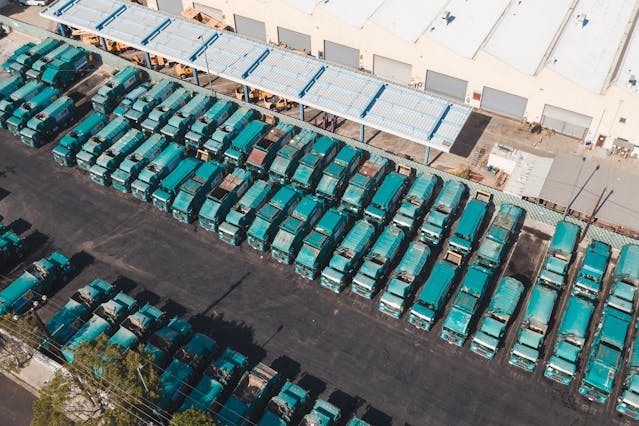In today’s fast-moving Irish economy, business fleets are more than just vehicles—they’re strategic tools that drive growth, logistics, and customer satisfaction. Whether a company specializes in retail distribution, field services, healthcare, or utilities, having a well-managed fleet can be the difference between staying competitive and falling behind. As urban delivery demands grow, sustainability goals become more urgent, and remote regions remain vital to economic activity, business fleets are helping bridge critical gaps across the Irish landscape.
Radius is one of the key players enabling Irish businesses to modernize their fleet operations. With comprehensive solutions that span fuel cards, vehicle tracking, EV integration, insurance, and telematics, Radius helps companies reduce operational costs while improving visibility and compliance. Its tailored offerings help businesses—from SMEs to national chains—optimize routes, monitor driver behavior, and stay on top of fuel expenses. This type of intelligent fleet management is increasingly essential in a country where fluctuating fuel prices, evolving emissions standards, and logistical challenges are all part of the playing field.
The importance of business fleets in Ireland also stems from the nation’s geography. With major population centers like Dublin, Cork, Limerick, and Galway spread across the island, efficient fleet logistics ensure timely service delivery and product distribution. Companies involved in food transport, medical deliveries, and construction supplies rely heavily on robust fleets to maintain their operations. In rural and semi-rural areas where public transport is limited, fleets often act as a backbone for mobile workforce access and last-mile logistics.
Another driving factor is sustainability. Ireland has committed to ambitious climate goals under its Climate Action Plan, including a national push toward electrification and reducing transport emissions. Business fleets are now a focal point of these initiatives. Companies are under pressure to replace internal combustion engine vehicles with electric vans and trucks while minimizing disruption. Managed fleet solutions help businesses navigate this transition by offering hybrid fleet options, energy usage analytics, and guidance on EV infrastructure setup.
Fleet management also plays a major role in compliance and risk reduction. Regulatory standards around tachograph data, driver hours, and vehicle safety checks are not only stringent—they’re actively enforced. A well-managed fleet ensures all legal obligations are met while reducing liability risks. Technologies provided by fleet service companies like Radius give managers real-time data that help prevent violations and maintain a safe, accountable operation.
In terms of financial impact, fleet efficiencies directly influence a company’s bottom line. Optimizing delivery schedules, reducing idle time, and maintaining vehicles proactively all contribute to significant cost savings. Businesses can track KPIs, schedule maintenance, and predict costs more accurately when they implement advanced fleet management systems. In a tight-margin market, these savings can be reinvested into growth, marketing, or workforce development.
Additionally, customer expectations are rising. Faster delivery windows, live tracking, and service transparency are now standard. A responsive, tech-enabled fleet positions a business to meet these expectations and provide a better customer experience. It also offers competitive differentiation in industries like courier services, mobile repairs, and logistics.
In summary, business fleets in Ireland are evolving from logistical necessities to strategic assets. With support from companies like Radius, Irish enterprises can not only improve operations but also meet environmental targets, regulatory requirements, and customer demands. In an economy that values efficiency, sustainability, and adaptability, managing a fleet is no longer optional—it’s essential.




